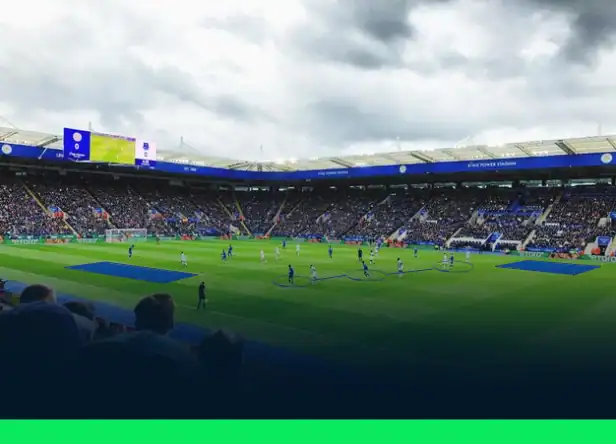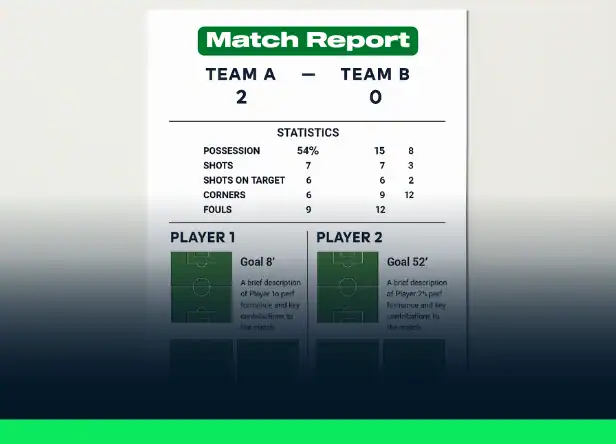For soccer fans, breaking into professional soccer scouting has become an increasingly feasible career route as it provides chances to combine great tactical understanding with talent discovery in one of the most lively athletic sectors in the world.
Whether you already live in the soccer environment or come from a totally different professional background, moving into soccer scouting provides a great opportunity and a realistic professional change. Accepting allows for conventional observational techniques and cutting-edge analytical technologies, the modelling and scouting scene has visualisation to find the next generation of soccering ability.
Transitioning into a Soccer Scout Career: Is It Possible?
Switching careers into soccer scouting is attracting more and more interest from soccer fans. Before addressing whether this move is possible, let’s first define the role.
Understanding the Soccer Scout Role
Core Responsibilities of Professional Scouts
Talent Identification and Player Assessment
Contemporary soccer scouts serve as the strategic eyes and ears of soccer organisations, conducting comprehensive player evaluations that extend far beyond basic technical abilities. A professional scout must assess players across four fundamental dimensions: technical proficiency (ball control, passing accuracy, shooting technique), tactical awareness (positional understanding, game intelligence, decision-making speed), physical attributes (pace, strength, endurance, agility), and psychological characteristics (mental resilience, coachability, competitive mindset).
Data-Driven Analysis and Reporting Scouting calls for expertise with performance metrics and sophisticated analytical tools. Expected goals (xG), anticipated assists (xA), pass completion rates, defensive actions, and positional heat maps are used by organisational scouts using tools including Hudl SportsCode, NacSport, and Metrica Sports. This technical integration enables scouts to offer numerical backing for their subjective notes, hence producing whole player profiles guiding recruiting choices.
Competitive Intelligence and Opposition Analysis
Beyond talent identification, scouts conduct detailed opponent analysis, studying team formations, set-piece routines, pressing triggers, and individual player tendencies. This tactical intelligence directly influences match preparation and strategic planning at the professional club level.
Tasks for Someone Looking to Retrain as a Soccer Scout:
- A scout in career transition must be willing to travel frequently and explore soccer clubs and stadiums across the United States in search of new talent.
- Carefully reviewing match and training videos is essential for a retraining scout. This helps the scout extract valuable statistics to enrich their database and knowledge about the player.
- A transitioning scout must evaluate each player’s skills based on their position within the soccer team.
- Strong sales and negotiation skills are necessary for a retraining scout to stand out in a competitive market and successfully secure deals with new players.
The scouting field, also referred to as “talent identification,” is gaining more media attention. In recent years, several talent finders have become known on social media, calling themselves scouts.
The soccer scout profession offers a perfect career change opportunity for those looking to combine a passion for the game with on-field expertise, all while working within a soccer club.
Let’s now explore how to truly begin retraining to become a soccer scout.
Switching Careers into Soccer Scouting: Pathways to Professional Soccer Scouting
Before beginning your transition into scouting, it’s important to assess your situation. You may already know the scouting profession and have worked in soccer, or you may be completely new to the role and want to make a change. Here’s the path to follow in both cases.
Situation 1: Soccer Industry Experience
“I know the scout profession and I want to transition into soccer scouting”

Leveraging Existing Soccer Background
If you possess coaching certifications, playing experience, or other soccer industry involvement, your transition path becomes more direct. Former players and coaches bring invaluable tactical understanding and credibility when assessing player potential. However, formal scouting education remains essential to develop systematic evaluation methodologies and report-writing skills.
“Having prior coaching experience is a real advantage.” – Antoine Ferreira, Head of the Women’s Recruitment Department at Paris FC, about the coach-to-scout career change
Required Professional Development
Even with soccer experience, specialised scouting training is crucial. Organisations like UEFA provides Elite Scout Programme (ESP) certification for experienced professionals. These programs cover player assessment frameworks, data analysis techniques, and professional scouting protocols.
Situation 2: Career Transition from Outside Soccer
“I don’t know the scout profession and I want to transition into soccer scouting”

Building soccer Knowledge Foundation
Aspiring scouts without direct soccer experience must invest significantly in developing sport-specific expertise. This includes understanding tactical systems (4-3-3, 3-5-2, pressing triggers, defensive lines), positional requirements across different formations, and the nuances of player development pathways from youth academies to professional soccer.
Structured Learning Approach
Career changers benefit from comprehensive scouting education programs that combine theoretical knowledge with practical experience. These courses typically include modules on anthropometric assessment, psychological evaluation, relative age effects in youth development, and the integration of traditional observation with data analytics.
Whether you’re in one of these situations or another, how can you start your transition into soccer scouting in the simplest and fastest way possible, and which course should you choose?
How to Transition into Soccer Scouting
To move into scouting, it’s essential to start with a free soccer scout course. This training will allow you to acquire all the technical skills necessary to successfully retrain as a scout.
Essential Skills for Professional Soccer Scouts
Technical Competencies
1. Advanced Player Analysis
Professional scouts have to find developmental potential as well as present ability. This calls for knowledge of early talent signs: first-touch quality under duress, spatial awareness in crowded regions, decision-making speed in transition times, and adaptability to tactical instructions. Elite scouts can anticipate how young players would technically and physically grow over 3–5 years.
2. Technical Integration
Scouting calls for mastery of several technical platforms. While statistical databases offer performance benchmarking against peer groups, software for video analysis allows for a frame-by-frame breakdown of player movements. Increasingly, scouts use predictive modelling, passing networks visualisation, and GPS tracking information to help their evaluations.
Soft Skills and Professional Attributes
1. Communication and Reporting
Effective scouting reports should help recruiters and coaches turn sophisticated findings into useful intelligence. This calls for diplomatic conversation when discussing player limitations or transfer negotiations, clear writing skills, and the ability to present results to different audiences (technical staff, club directors, agents).
2. Networking and Relationship Building
Success in professional scouting depends much on industry contacts. Scouts have to build ties with young coaches, academy leaders, player agents, and other scouts all over many leagues and countries. Early intelligence on developing talent and player access for thorough assessment is made possible via these networks.
Using New Technologies
Your soccer scouting training will introduce you to new technologies, tools, and advanced software used in the field, such as Hudl SportsCode, NacSport, Metrica Sports and Wyscout. This will help you optimize your recruitment process and succeed in your transition into scouting.
Career Progression and Earning Potential for Soccer Scouts
Salary Expectations and Geographic Variations
Depending on expertise, region, and organisational level, the financial scene for soccer scouts changes greatly. While experienced professionals at top teams can earn $75,000–$120,000 or more annually, entry-level scouts in the United States usually make $27,000–$35,000. Reflecting the high-stakes nature of professional recruiting decisions, Premier League chief scouts often make more than £100,000 yearly.
Compensation Based on Performance
Many scouting positions include bonuses depending on successful player acquisitions or discoveries. Scouts who spot players signed by their teams usually get significant performance bonuses, hence providing direct financial incentives for astute talent identification.
Advanced Career Opportunities
Specialised Scouting Roles
Specialising in different fields, professional scouts may concentrate on: young academy talent recognition; first-team recruitment; opposition analysis; or data analytics integration. Regional scouts cover particular geographic areas or league systems, while video analyst scouts concentrate on technology evaluation.
Leadership and Management Positions
Experienced scouts advance to positions of head of recruitment, scouting director, or technical director. These positions call for direct participation at the board level in transfer decision-making as well as strategic planning and scout team supervision.
Related Career Paths
Experience gained from scouting opens doors to associated soccer jobs: player agents negotiating and representing players, coaching jobs, especially with tactical analysis experience, or media analysis posts. Professional scouting offers transferable abilities that are appropriate throughout several soccer industry sectors.
Scouting Technology and Methodology
Essential Software Platforms
Video Analysis Systems
Professional scouts rely on specialised software for detailed player evaluation. Hudl provides comprehensive video tagging and sharing capabilities, while SportsCode offers advanced multi-angle analysis features. These platforms enable scouts to create detailed player compilations highlighting specific skills or situational performance.
Statistical Analysis Tools
Data-driven scouting utilises platforms like FBref for comprehensive player statistics, Understate for expected goals analysis, and Smarterscout for advanced performance metrics. Professional clubs often employ proprietary databases combining multiple data sources for competitive advantage.
Integration of Traditional and Modern Methods
Hybrid Scouting Approach: Professional scouting mixes live match viewing with technical analysis. While employing video and data analysis for thorough technical assessment, scouts attend games to evaluate intangible attributes (leadership, calmness under pressure, teammate Interactions). With this hybrid strategy, players are thoroughly evaluated across all pertinent aspects.
Psychological and Character Assessment: Scouting stresses more and more psychological assessment in addition to technical skills. Scouts evaluate players’ responses to setbacks, teammate communication, work rate in various match situations, and coaching instruction adaptability. Often, these personality qualities, more than sheer technical talent, define long-term professional success.
Getting Started: Practical Steps for Career Transition
Educational Foundation
Aspiring scouts should pursue recognised certification programs. SoccerEDU course provides fundamental talent identification principles, while advanced programs like UEFA’s Elite Scout Programme require extensive industry experience. Many programs offer online components with practical assessment requirements.
Academic Background Benefits
While not mandatory, relevant academic qualifications enhance scouting credentials. Sports science, psychology, data analytics, or business management degrees provide valuable foundational knowledge. However, practical soccer experience and demonstrated analytical ability often outweigh formal academic credentials.
Gaining Practical Experience
Volunteer and Entry-Level Opportunities: Career changers should seek volunteer positions with local clubs, youth academies, or semi-professional teams. These roles provide essential hands-on experience in player evaluation, report writing, and soccer industry networking. Many professional scouts begin their careers through volunteer positions that demonstrate commitment and capability.
Building a Portfolio: Aspiring scouts must develop comprehensive portfolios showcasing their analytical abilities. This includes detailed player reports, opposition analysis documents, and examples of data interpretation. Quality portfolio materials demonstrate professional competency to potential employers and facilitate career progression.
Professional Development Resources
Industry Networking Events: Professional groups arrange networking events, seminars, and conferences for scouting experts. These meetings offer ongoing learning chances, industry trend updates, and priceless professional contacts. Active participation shows dedication to industry involvement and professional growth.
Shadowing Programs and Mentoring: Many established scouts offer mentorship opportunities for career changers. Shadowing experienced professionals provides priceless insight into daily responsibilities, decision-making processes, and industry best practices. Many of these partnerships result in official employment possibilities and continuous professional counselling.
Global Opportunities and Market Considerations
International Scouting Networks
The worldwide character of professional soccer provides qualified scouts with great international opportunities. Looking for different talent pools and competitive benefits, big clubs have scouting networks spanning several continents. Premium roles in global markets are reserved for scouts with regional knowledge, cultural competency, or linguistic abilities.
Emerging Markets and Growth Areas
Development Hotspots and Emerging Markets
For professional scouts, women’s soccer offers great growth potential. The growing women’s game generates demand for trained skill identification specialists, providing job chances in somewhat neglected areas. As teams spend more on long-term player growth plans, youth development and academy scouting also provide great development prospects.
3 Free Resources to Help You Transition into Soccer Scouting
1. SoccerEDU Scouting Articles
Access all our soccer scouting articles: how to analyse player performance factors, build a scouting resume, the qualities needed to be a great scout, and more.
2. Soccer Software Trials
Take advantage of free trials through SoccerEDU partnerships:
- 2 months free Hudl SportsCode
- 3 months free NacSport
- 2 months free Metrica Sports
These tools are used by top clubs worldwide, including Borussia Dortmund, FC Porto, and Liverpool.
3. YouTube
Watch testimonials and videos about soccer scouting to get practical advice and learn new scouting techniques.
Transitioning into Soccer Scouting: Building Your Professional Soccer Scouting Career
One must carefully plan, consistently develop skills, and actively interact with the sector to move into professional soccer scouting. Success calls for merging contemporary analytic skills with traditional soccer understanding, enhancing excellent communication abilities, and creating thorough professional networks.
The professional path provides great rewards: competitive senior salaries, direct participation in professional soccer success, and the pleasure of identifying future stars. Motivated people can effectively enter this dynamic and fulfilling career with adequate preparation, concentrated skill development, and strategic career positioning.
Whether using prior soccer knowledge or coming from outside the business, aspiring scouts have to embrace lifelong learning, technological adaptation, and career growth. The contemporary scouting sector prizes those who have a deep passion for soccer as well as methodical analytical methods, producing permanent jobs within the talent identification system of professional soccer.
Investing in appropriate training, certification, and experience-building pays dividends through access to one of soccer’s most intellectually stimulating and financially fulfilling career paths. Professional soccer scouting provides a great chance to help mold the future of the most played sport in the world for those who are committed to becoming masters of both traditional scouting skills and modern analytical methods.





